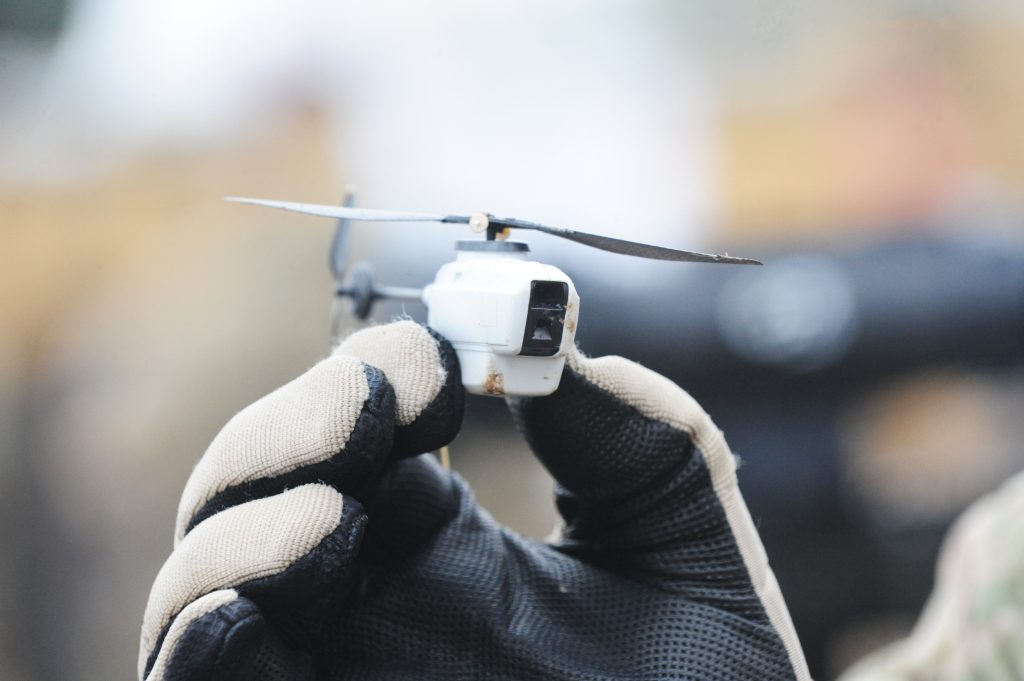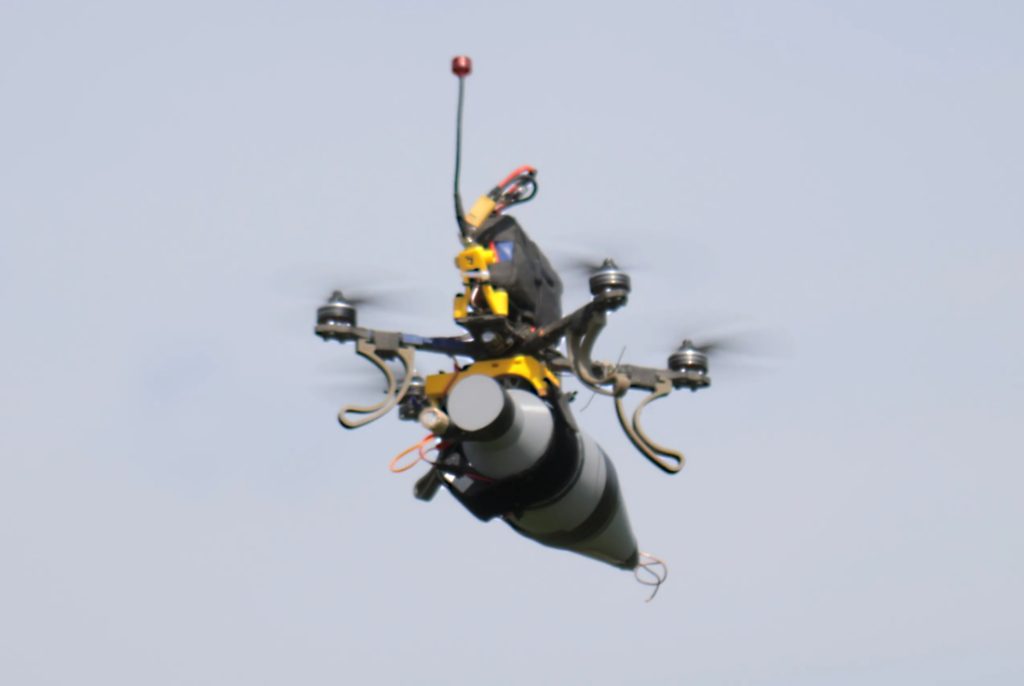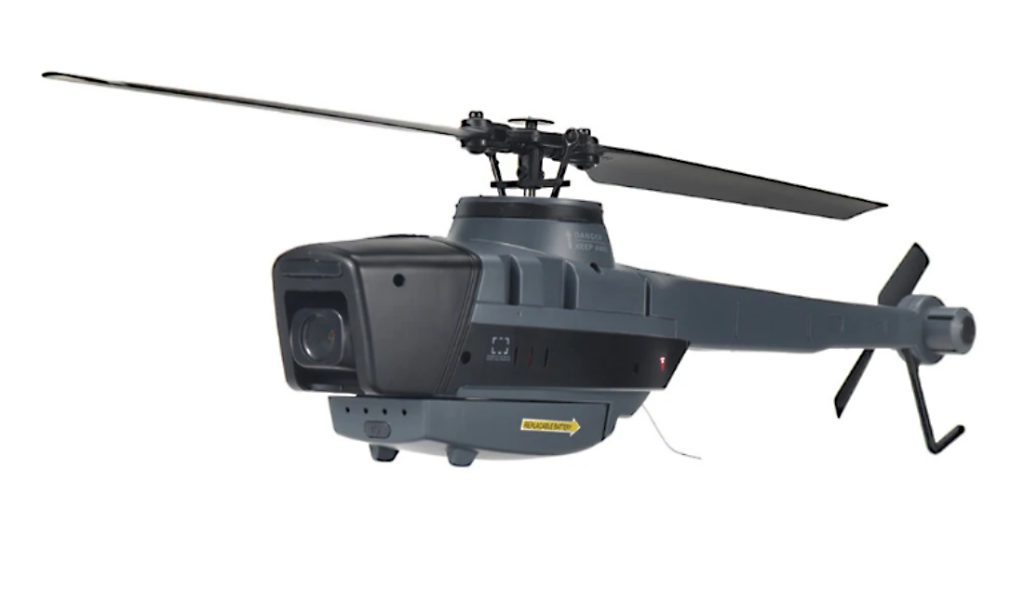Drones, good or bad?
The unfortunate events in Ukraine over the last few years have forced all of us to change our ideas about a lot of things, from the delusions of the ‘peace dividend’ era, to the enormous potential of drone technology, everything is changing before our very eyes.
We have had to eat our words about the capacity of even small camera drones to be adapted for warlike purposes, as there is now no doubt that there are Mavic 3 drones out there now with hand grenades strapped to them, and very effective they seem to be too.
The real shock, though, is how quickly science fiction has come to life, with individual soldiers being chased down by ‘kamikaze’ drones, artificial intelligence being installed to defeat electronic jamming and the very idea of an unmanned (but still intelligent) vehicle being expanded to include boats, jetskis, light aircraft and even tiny flying cameras no larger than a dragonfly.

The Black Hornet Nano Unmanned Air Vehicle measures around 4 inches by 1 inch (10cm x 2.5cm) and provides troops on the ground with vital situational awareness.
The Black Hornet is equipped with a tiny camera which gives troops reliable full-motion video and still images. Soldiers are using it to peer around corners or over walls and other obstacles to identify any hidden dangers and the images are displayed on a handheld terminal.

They say necessity is the mother of invention and probably fighting for your country’s life is about as ‘necessary’ as it gets, but the remarkable speed with which a relatively small population not known for their pioneering hi-tech industries has adopted, adapted and improved drone technology does provide an example to us all. The Ukrainian government have thrown a lot of resources at drone technology and the country seems to be on course to manufacture over 2 million drones this year, while constantly innovating and improving ECM (Electronic Counter Measures) systems like AI, variable frequency communication to defeat enemy technology. Win or lose, it seems fairly obvious that the world of unmanned aerial vehicles (UAVs) will never be the same again after this war, and even though one of the largest DJI stores in the world is currently situated in Kiev, we suspect that the Chinese monopoly of the drone world will probably not survive this conflict.

An industry capable of producing 2 million drones a year will be a serious competitor in the future and looking for European and worldwide sales to keep themselves busy. Add to this the fact that many economists are predicting an end to globalisation with the increasing international polarisation resulting from the Russia/China/North Korea/Iran axis, there look to be interesting times ahead. China’s traditional cheap labour advantage seems to be also rapidly diminishing, so there seem few reasons why a whole new European drone industry could not emerge once the smoke and cordite have settled.
